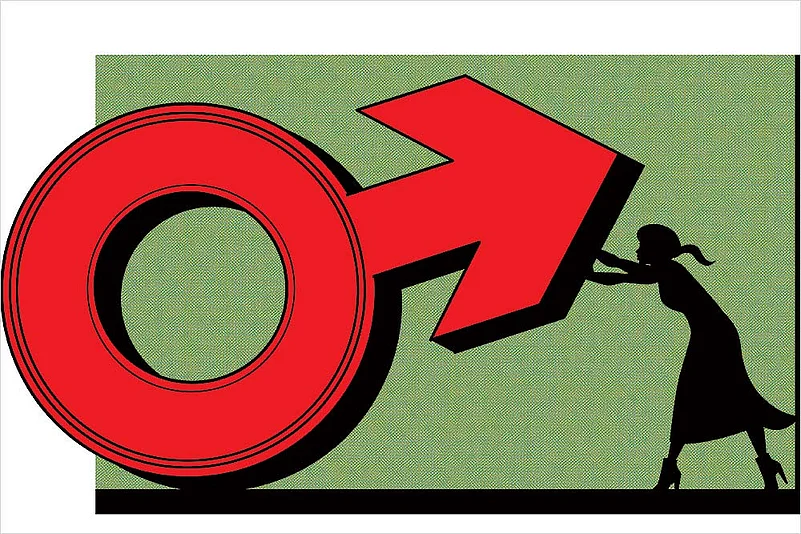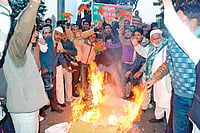Feminists critical of the List of Sexual Harassers in Academia (LoSHA), compiled by Indian-American lawyer Raya Sarkar, were probably ill-served by academic Shiv Visvanathan, when he tried to rally to their cause recently. Oozing an astonishing lack of self-awareness, Visvanathan’s essay in this magazine (The Chilly Justice of the Gulag, April 16) cast forensic light on exactly what is at stake in the, at times, falsely polarised battle between those who emphasise institutional due process and those who sought to ‘name and shame’ problematic behaviour which slips through institutional radars. An impassioned lament for the loss of heterosexual male entitlement, each self-pitying sentence in Visvanathan’s essay ironically ends up bolstering Ms Sarkar’s case. The LoSHA lists male academics who have been identified by different women as sexual predators and suggests that patriarchal power and institutional status have given some men a sense of entitlement and access to young women’s minds and bodies. Whatever the merits of Ms Sarkar’s case, Visvanathan’s essay is, unfortunately, expert testimony to the general existence of a sense of entitlement. It is important not in itself but as a symptom of a greater patriarchal malaise.
Full disclosure: as the LoSHA unfolded on social media, I expressed a measure of support for what it sought to achieve and have defended Ms Sarkar and others against some of the more virulent charges against them—such as being a ‘lynch mob’ like the vigilante gangs of Hindutva. This does not mean that I cannot see why the LoSHA was criticised. We absolutely must have ‘due process’ where possible, we must strengthen institutional mechanisms of redress, and we must ensure that justice is served for all, including the accused. In a recent essay in this magazine, Sehba Imam argued that activist-scholar Khurshid Anwar, who committed suicide after accusations of rape, had been ‘swallowed’ by a social media trial which did not allow for the ‘due process of law’ and that the accused too are entitled to justice. In institutional terms and in relation to such a serious charge, she is right.
It is clearly possible for mechanisms of naming and shaming to be misused vindictively and in political ways, and for innocents, particularly targeted minorities, to be caught up in serious charges without legal recourse. These dangers are obvious and we have a duty to consider them soberly. Yet, the singular focus on ‘due process’ appears at times to miss one very important point. In addition to drawing attention to multiple institutional failures on the question of sexual harassment, what the admittedly desperate act of the LoSHA sought was to draw attention to an endemic culture of harassment, predation and abuse in academia. If due process is vital for changing institutions, what mechanisms can be deployed to change cultures?
Visvanathan’s piece is ironically helpful here, for like many who supported the LoSHA, he understands that it is not just institutions or cognisable breaches of the law which are at stake, but sexual cultures as such. These are cultures in which notions he extols—‘romance’, ‘flirtation’, ‘mutuality’, ‘innocence’, ‘intimacy’, ‘joy, ‘desire’ and ‘beauty’—play out. But these are obviously not neutral concepts: they are shaped by society and, at the present time, by cultural formations which heavily advantage heterosexual men, particularly when such men also wield institutional authority. To make this claim is not to ‘essentialise’ but precisely to historicise. It is astonishing to me that any cultural critic could overlook this or possibly imagine that ‘the normative’ is a zone free of power. Yet, the pretence that it is so inflects a cringe-worthy lament for a time when the ‘man-woman relationship’ (unappetising phrase, meaning, presumably, heterosexual coupledom) ‘had a sense of celebration, of tolerance and humour’.
This is an old plaint: that women who seek to hold men accountable for their abusive and predatory behaviours are in danger of destroying joy and beauty. Aesthetics is victimised by politics. This is a standard accusation faced by those who have supported the #MeToo movement in the West—where women, and some men—have gone public about a range of abusive sexual behaviours by powerful men. Charged with sexual misconduct with a less than fully willing student in J.M. Coetzee’s famous novel Disgrace, the defiant protagonist, David Lurie, makes only one assertion: ‘Suffice it to say that Eros entered.’ This assertion, it seems, suffices for Visvanathan too as he charges younger feminists with peddling ‘packaged discourse’ and ideologies; his own ostensibly more evolved preference is for a ‘laboratory’ of ‘man-woman relationships’ which allows for ambivalences. Sounds lovely. Surely only ‘puritanical’ killjoys are against experimentation and ‘utopian romanticism’.

It turns out that anyone who asks questions about the protocols used in the laboratory of romance and reciprocity—who suffers when ‘experiments’ go wrong, for instance?—is not just a killjoy but an active totalitarian. A symptom of patriarchal arrogance is that it need not offer an argument but can legitimise itself through a string of grand assertions. Visvanathan does not leave one overblown or lazy metaphor unused in making his histrionic main claim—that ‘political correctness’ victimises men. Gulags, kangaroo courts, Stalinism, Naxalbari, ‘Pavlovian worlds’, ‘voyeuristic lynch mobs’, panopticons, misandry or hatred for males—only the Holocaust is absent from this list of oppressions inflicted by young feminists (feminazis?) on male innocence. For one Google document (the LoSHA), that is a truly impressive accomplishment.
Here is the divide in a nutshell, familiar from the arguments around #MeToo as well. Visvanathan represents those who wish to retain a cultural status quo where there is great latitude for straight male ‘mistakes’. Those who support naming and shaming clearly want this status quo changed, and changed by whatever means necessary, to also misuse a revolutionary allusion slightly. The clearly imperfect method of naming and shaming challenges the privileges that self-identified ‘radical’ straight male intellectuals have arrogated unto themselves in the smug belief that they are a cut above other men because, in Visvanathan’s terms, ‘we were inventing a way of life.’ It is exactly this way of life, a set of sanctioned behaviours and cultural privileges which the LoSHA puts up for discussion; not because joyless feminists can’t grasp ineffable beauty and transcendent longing, but because ‘tolerance’, ‘intimacy’ and ‘humour’ often become alibis for the exploitation of power differentials in ways that inevitably advantage heterosexual men. Such exploitation also often takes place in private and ‘evidence’ is impossible to come by. Let’s not pretend otherwise.
At the same time, as noted feminist and legal scholar, Ratna Kapur, pointed out to me, it is important—and those who have generally supported the LoSHA must reflect on this—to not conflate different categories: sexual violence, sexual harassment, sexism and sexual speech are all very different things requiring different responses. The supporters of LoSHA must reflect on questions of degree and difference as well as the potential abuse of such lists especially by the politically hostile.
The LoSHA is better seen as an experiment, warts and all, in creating mechanisms of challenge and opposition to dominant sexual cultures. Alongside strengthening mechanisms of due process, it is time to have a brutally honest conversation about the kinds of behaviours that become ‘normative’ and form the seedbed of what is known as ‘rape culture’—the entitlement of straight men at all times to women’s minds and bodies. This is a culture where even consent—which Visvanathan has elsewhere claimed is ‘fetishised’—is at times given under pressure or duress. Every single woman I know has experienced these things in academia: pestering, cajoling, inappropriate language and unwanted touching, predatory pursuit, molestation that can’t really be ‘proved’ as it takes place privately or invisibly, and so on.
Due process is a vital instrument but it cannot account for the subtleties of the exercise of power. One young woman said to me in the wake of Raya’s publication of the LoSHA that it made her feel guilty for not speaking up herself because she and others recognised the ‘truth’ of the list before thinking about its politics. When I first glanced at the LoSHA, I instantly recognised three names there from personal experience. It is clear that this generation—who don’t need Visvanathan to explain feminism to them as he likes to do—is a lot less willing to put up with low-grade exploitation and predatory behaviour masquerading as radical forms of love and friendship. They are not actually questioning ‘reciprocity’ but precisely the opposite: the absence of the possibility of reciprocity in situations marked by huge power differentials. A female undergraduate cannot really experience a ‘reciprocal’ relationship with a male teacher, especially where there is also a big age difference—even consensual relations in those situations are very unlikely to be genuinely ‘reciprocal’, a situation which requires, at the very least, a nominal equality. Visvanathan feels that there is a ‘one-sidedness’ to the ‘pain’ expressed by his women students because it doesn’t take men’s feelings into account; imagine, then, how much more one-sided should a situation of sexual engagement be where the power differentials are huge.
Enough with the self-pity and finger-wagging: we need radical cultural change alongside due process. As the new movement declares: time’s really up!
(The writer teaches at Cambridge University)
























